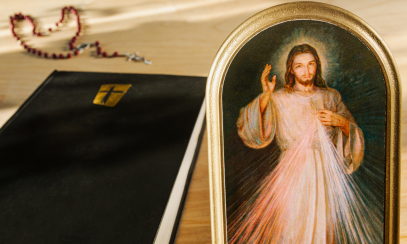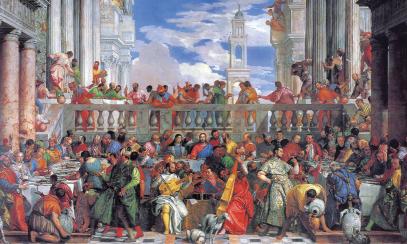
What Does Thanksgiving Tell Us About Ourselves?
I must admit that Thanksgiving is one of my favorite holidays. Yes, I am aware that it is a secular, not a sacred, holiday, and I think that’s part of what I like about it. You see, even though our society is increasingly secularized and we continuously remove references to God from public sight, we have still retained a holiday that is reserved precisely for giving thanks to God. Sure, it is mostly portrayed in secular media as being about the food we traditionally consume or, at slightly better moments, about gathering as a family. Yet, we still call it Thanksgiving.
This points to something in our collective subconscious that we, as a society, try to avoid acknowledging. Simply put, the fact that we have a holiday called Thanksgiving presumes two major things: first, we have something for which to be grateful; and second, we have someone to whom we can be grateful. Let’s reflect briefly on these presumptions.
First, the idea that we have something for which to be grateful is too often dismissed. We come at life with the presumption that it is having something to complain about that makes life worth living.
And we all have something, whether major or minor, about which we can complain. Yet, at the same time, we must recognize the generosity of our God, even down to the basic goodness of existence.
Too often we try to make gratitude into a comparative thing. We think of those “less fortunate” than us as if that makes what we have count more. Now, that’s not to say that exercising what we call a preferential option for the poor and marginalized is not an appropriate attitude. Quite to the contrary, those most in need always ought to come first. But, my point is that in our interior spirituality, our gratitude is not based on others having less than us. This misses the point of gratitude. Gratitude points us to recognize good wherever we find it, and good does not depend upon evil (or the lack of good) for its existence.
Now, secondly, this idea of a holiday of “Thanksgiving” also uncovers a presumption that goodness comes from somewhere, or someone. Fundamentally, when we really think about the goodness of the world around us, it calls our hearts to a consideration of its source. There is something not quite right when internalizing the idea that we have no one to whom we can say “Thank you.” A piece of the puzzle of our existence is missing. Identifying this piece is the only way that we can find true peace.
What the holiday of Thanksgiving demonstrates to us is that deep down, in our core, we, as human beings, recognize that creation is fundamentally good and that there must be a God to whom we can express our gratitude for the goodness of creation. We, as Catholics, know that the act of giving thanks is an important part of the human condition. It is one of our major forms of prayer outlined in the Catechism of the Catholic Church. It is also the name we give to our highest form of prayer: the Eucharist. Eucharist means Thanksgiving. In our liturgical celebration, we give thanks not just for the goodness of creation, but also the loving offer of salvation extended to us by the same God.
Michael Martocchio, Ph.D., is the diocesan secretary for evangelization and director of the Office of Catechesis and Christian Initiation. Email him at mmartocchio@charlestondiocese.org.



